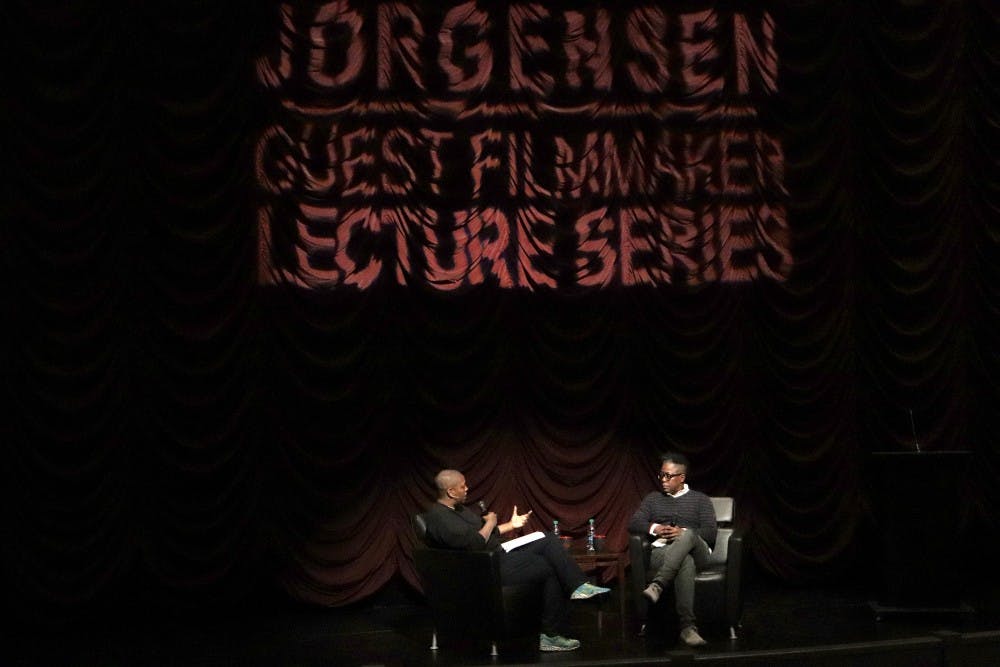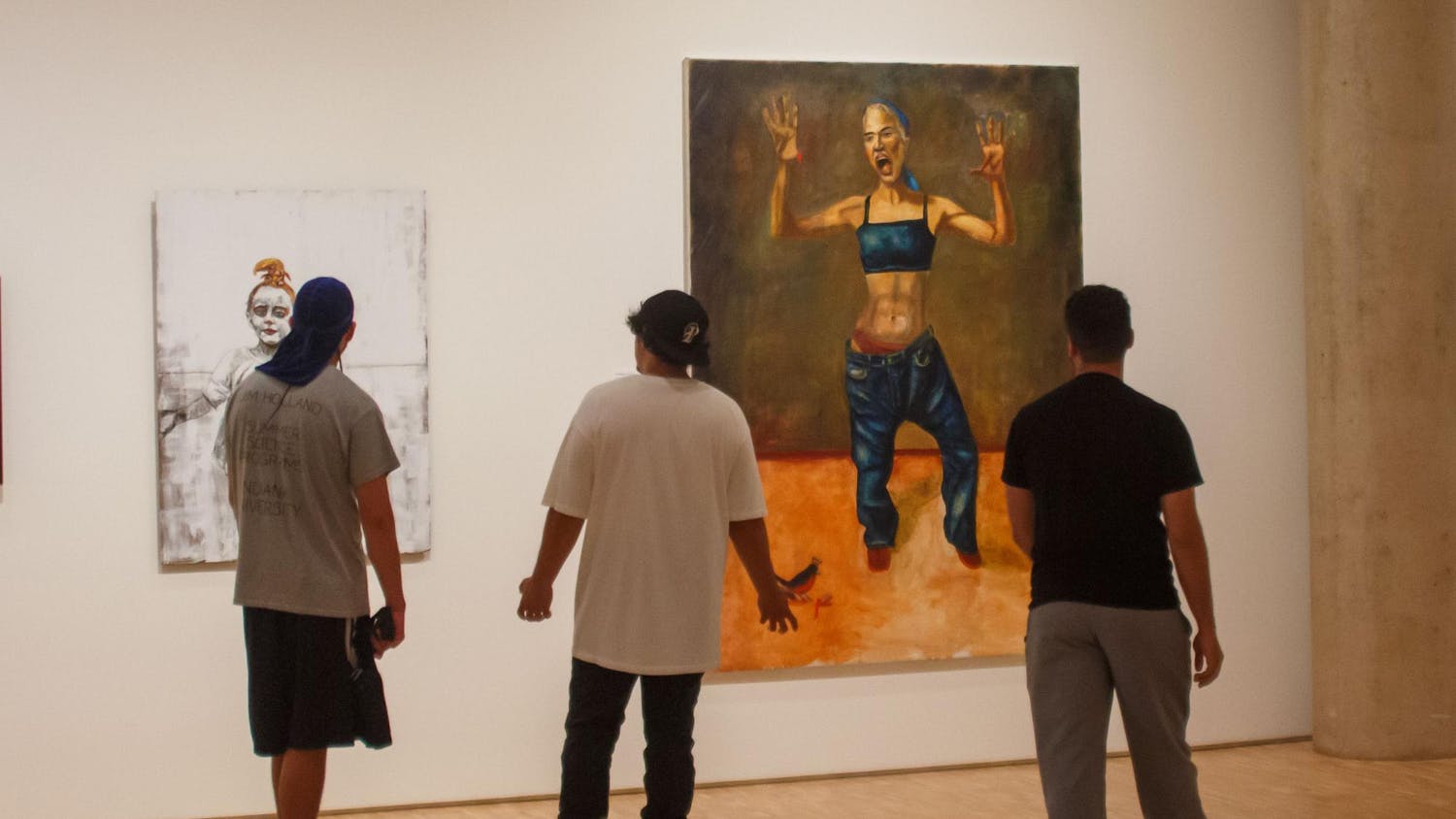The vitality of cinema is in its ability to represent a breadth of different artists’ stories, but to do so, voices must be granted to people of all creeds, sexualities, and ethnicities, said LGBT filmmaker Cheryl Dunye to an audience of students and community members at a talk Tuesday afternoon at the IU Cinema.
Dunye, a black lesbian filmmaker whose works were an influential part of Queer New Wave cinema in the 1990s, was joined onstage by Terri Francis, director of the University’s Black Film Center/Archive.
“I do think that the personal is political,” Dunye said. “Everybody’s personal is political. Everybody’s story is important — not just my own.”
Dunye’s talk was prefaced by a selection of clips from her works, including scenes from “Black is Blue” and “The Watermelon Woman,” as well as an interview with acclaimed filmmaker Ava DuVernay about their work together on DuVernay’s television series, “Queen Sugar.”
Dunye lauded DuVernay’s television work, saying she felt that “Queen Sugar” offered black viewers a perspective on black life and culture that just couldn’t have existed when she’d first begun working.
“It feels black. It looks black. It’s about a certain blackness that is conflict — people having no fathers, no brothers,” Dunye said. “We are blessed as African Americans to have a seat at that table.”
Francis guided Dunye’s lecture by asking a series of questions about her life, career and artistic endeavors.
Dunye said when she first began working, she felt compelled to make art that dealt with queerness, blackness and the intersection between the two, as if it was a responsibility or a necessity.
“In making my early work, it was because I had to,” Dunye said. “Nobody else was making it. I just had to do it, and it was received for the people who needed to see it, who also needed to be recognized and acknowledged and live their lives.”
But Dunye said as times have changed and her career has progressed, she no longer feels beholden to making films centered around specific topics. Now, she’s free to explore her own fascinations.
“All cultural production is changing, and it does not look the way that it used to,” Dunye said. “We’re wanting to hear about that grey area of emotion where most of us live. We’re not all happy. We’re not all sad. We’re floating in between.”
She alluded to filmmakers and artists like Ava DuVernay, SZA and the creators behind numerous popular black-centric television series. Dunye said she feels as though there is a great importance to letting new artists surface and deliver fresh interpretations of the world around them.
“Y’all can take the table. Y’all can cut the table up. I don’t care … I gave you the table,” Dunye said. “I’ve done a lot of work. I’ve been in fields by myself at night, alone and afraid. I’ve been called many things. I’ve cleared the field out. Now I’m going over to the sunshine for a bit. I’ll save a place in the sunshine for you, too.”
A recurring motif throughout Dunye’s talk was the notion of having a “seat at the table."
But Dunye also said she’d grown up with great pride in her identity. As a lesbian, she said she’d never felt compelled to stay in the closet, and having been born in Liberia, she proudly identified herself as non-American.
“I’m not a person who ever was in the closet, who ever hid any part of myself,” Dunye said. “I was always a maker that was out and was making subjects about my life and the people that I loved.”
Her debut feature film, the 1996 comedy, “The Watermelon Woman,” was the first film ever to be directed by a queer woman of color.
Dunye said she was content with blazing her own paths in her career. She never rested, and always saw herself as actively engaging with her interests.
“Dancing with them,” she called it. Dunye said it was a way of pursuing her ever-changing dreams.
“My dream is the African American dream. My dream is the African dream. My dream isn’t even written,” Dunye said. “Let me live that dream.”



